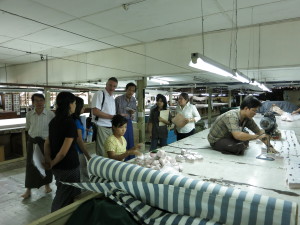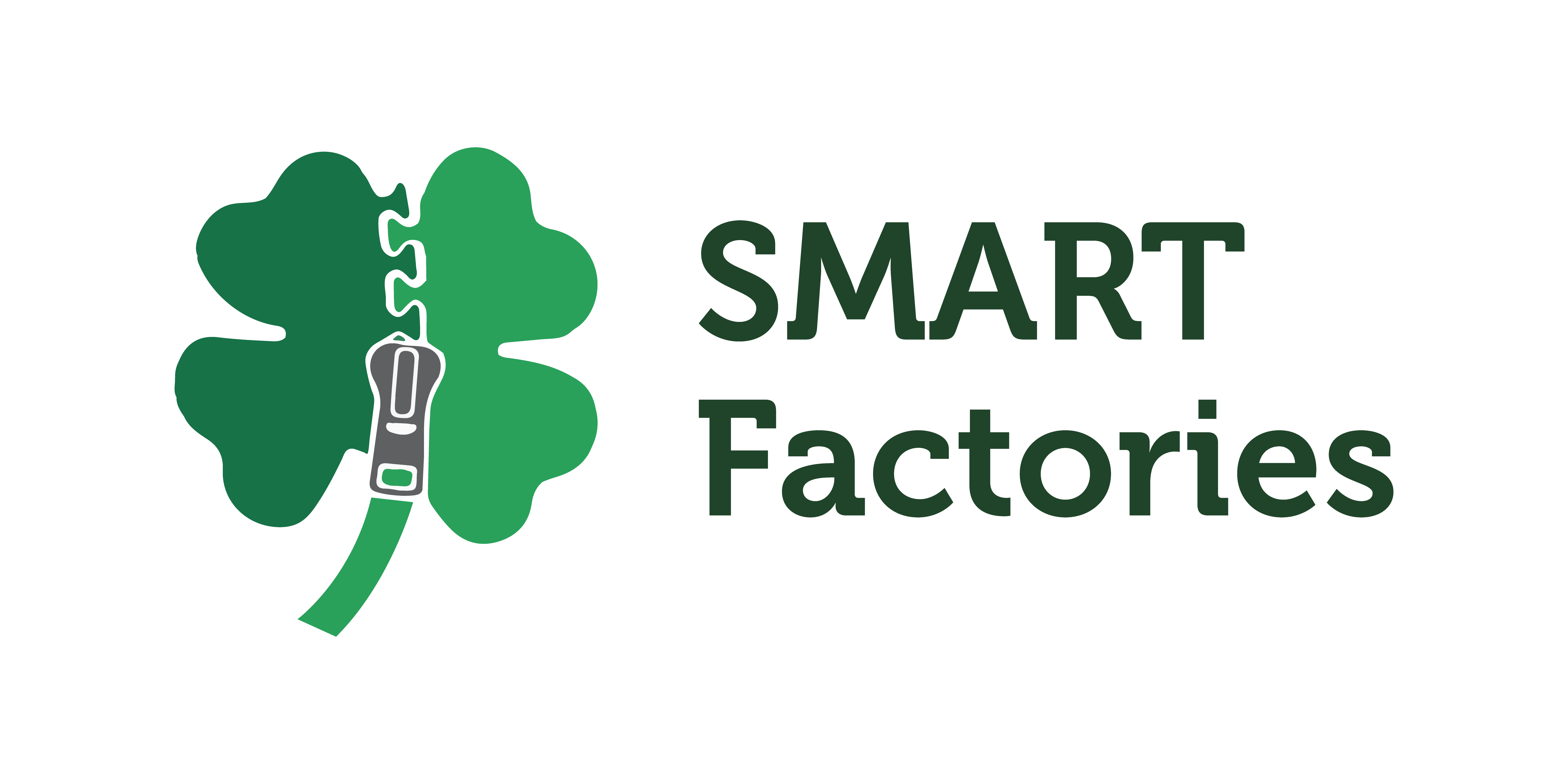 Business support activities from the SMART Myanmar project stepped up a gear in November 2013 as detailed work started with the first local garment business in Yangon.
Business support activities from the SMART Myanmar project stepped up a gear in November 2013 as detailed work started with the first local garment business in Yangon.
The factory in focus produces and supplies a wide range of garments to both the local and international markets. It employs circa 600 people in a single facility comprising 6 production lines. The factory has a very forward looking management team who recognise the pressures that international competition will bring and the need to instigate a program of continuous improvement to tackle those pressures. It also has a very forward looking employee welfare program and is committed to improving their conditions. Indeed they recently sponsored the building of a new school in the locality as part of their corporate responsibility activities.
Richard Wright, Executive Director of Sheffield Chamber had visited the factory earlier in the year and identified it as a great place to start, and a factory he believed the SMART team could make a real difference to. It would act as an excellent show case. Consequently he and the SCP trainees dedicated a significant amount of the two weeks he was in Myanmar to starting the improvement process. This involved basing themselves in the factory for several days and ensuring they started to understand exactly what was going on.
Richard has a long history in manufacturing and business improvement. He and also the new SMART Myanmar Team Leader Ernst Sykora know that improvements must be based on real data and information, and only by collecting that will one know what is really going on. Consequently the first steps consisted of developing data collection sheets for two important production lines in the factory which manufacture garments for the Japanese and Korean markets. The factory in focus has a strategy to grow business in these products and supply more customers in more countries, including Europe, so getting these lines to work efficiently and to the highest quality is an important objective.
Over three days Richard and the SMART Myanmar local team worked with the employees and the management of the factory, training them how top collect and analyse the data themselves to really get to the root causes of the challenges. The data quickly identified issues around quality and re-work which was not causing scrap but did significantly reduce productivity and increase the cost of production.
Work will now continue under the supervision of Ernst Sykora, a textile expert with a track record of 40 years of experience in the texile sector in various funktios. Sykora and his team will instigate the actual improvements utilising techniques like 5S and root cause analysis. A really critical step in 5S is the standardisation of the working methods. The biggest outcome of standardisation is the removal of variability which is a core requirement to improving quality and productivity. Only when the process is standardised can other processes like 6 sigma be used.
It is hoped that the work in November will be the start of a long and fruitful relationship with the factory in focus. It is also good that the project is starting to deliver real benefits to businesses in Yangon and that the trainees are getting excellent experience which they will apply in the future.








